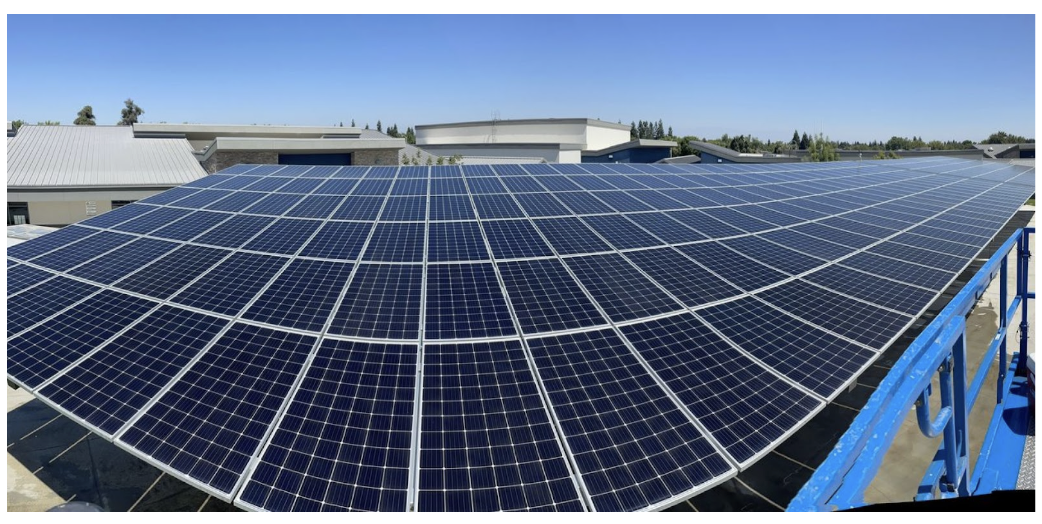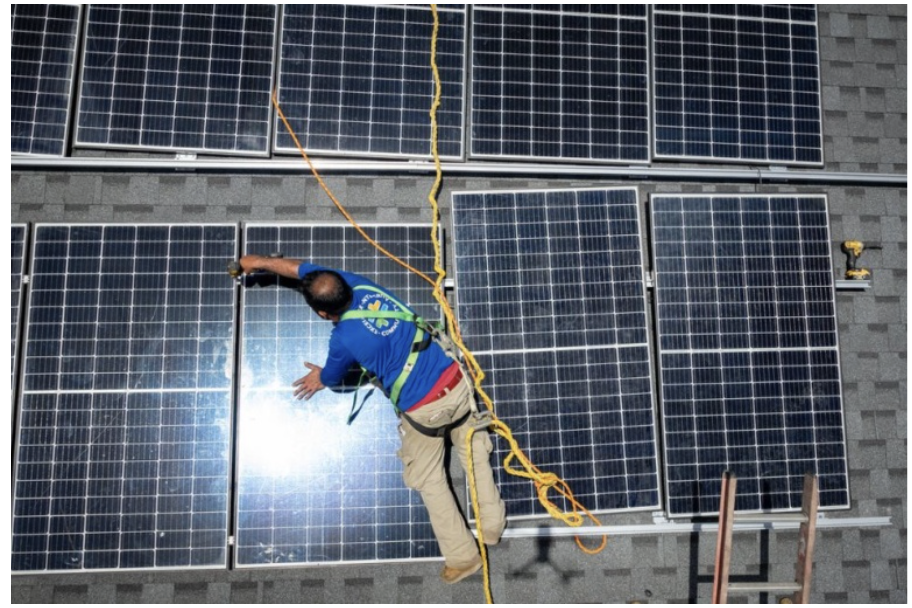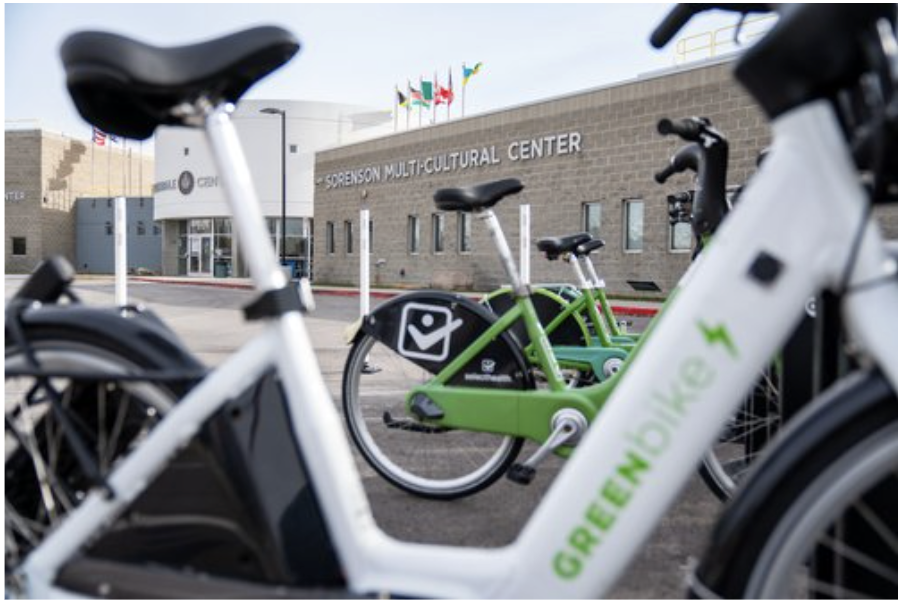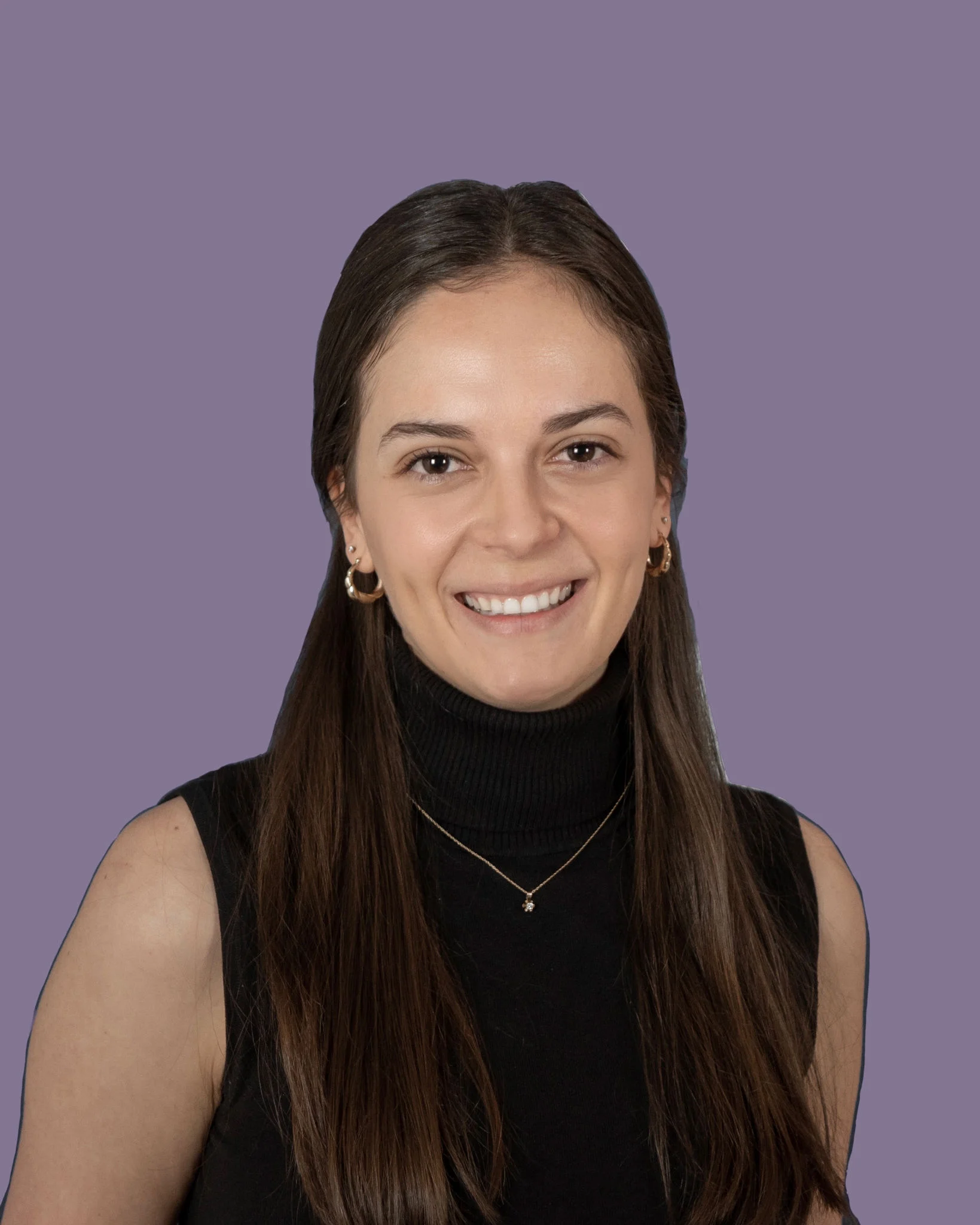At Okta, our commitment to 100% renewable electricity spans across our operations — from our offices to our remote workforce, and even the third-party cloud providers we rely on. But we don’t stop at just clean energy. When we purchase renewable electricity certificates (RECs), we actively seek out those with added social impact: Supporting projects that uplift communities, create local jobs, and drive equitable climate solutions. As part of our our global renewable electricity program, we increased the percentage of social benefit RECs from 68% in FY22 (February 1, 2021–January 31, 2022) to 82% in FY23 (February 1, 2022-January 31, 2023) to 88% in FY24 (February 1, 2023-January 31, 2024). This progress reflects our belief that sustainability should be both planet-positive and people-centered.
Okta’s partners work within their respective communities to support Okta’s commitment to clean energy and generate additional positive outcomes.
Okta’s renewable electricity portfolio supports the acceleration of renewable energy as well as societal impacts like (1) energy access, (2) public education, (3) local jobs/skill-based training, (4) economic development, (5) community-based healthcare and education. These projects have broader benefits, including access to clean, affordable energy, cost savings from utilities, improved air quality and associated health benefits, and local energy independence/generation.
Okta supports the following projects through our partners.
Visalia Schools Solar Project (Visalia, California)
The Visalia Unified School District (VUSD) solar project consists of installing rooftop and parking lot solar panels across 20 schools, which helps to provide renewable energy while helping the district manage increasing utility costs. This project partners with 3Degrees to receive support from corporate buyers such as Okta.
The VUSD portfolio generates approximately 3,800 MWh annually, supporting the school district’s sustainability goals while helping to redirect the school budget toward educational priorities. Additionally, increasing renewable energy can contribute to improved air quality and health benefits for the surrounding community.

Community Action Portfolio (CAP) (Puerto Rico, Georgia, Texas, Arizona, Hopi and Navajo Nations)
The Community Action Portfolio (CAP), led by 3Degrees, partners with organizations such as Solar United Neighbors, Barrio Eléctrico, Navajo Power Homes, and Capital Good Fund to uplift and support climate justice among priority populations in North America through small-scale renewable energy projects. These projects provide solar installations for over 300 low-to-moderate income (LMI) households, offering them clean, affordable energy solutions while helping to address systemic energy equity challenges.
CAP projects deliver community benefits that go beyond energy savings — like improving access to reliable power, reducing dependence on fossil fuels, and even offering pathways to renewable energy ownership. These initiatives help build long-term resilience and wealth within historically underserved communities.
PosiGen Louisiana (Louisiana)
In partnership with 3Degrees, PosiGen is a solar company dedicated to expanding access to renewable energy for LMI income households, regardless of credit score or income. Through an innovative business model that combines low-cost rooftop solar leasing with energy efficiency upgrades, PosiGen has provided solar solutions to over 13,000 households in Louisiana.
PosiGen saw a disparity of support and relief programs for LMI communities after Hurricane Katrina and found an opportunity to help with relief efforts by partnering with Greater New Orleans Housing Association and Solar Alternatives to implement the Solar Power For All program. PosiGen has generated over 300 job opportunities in local communities, making renewable energy more inclusive and accessible for all.

Solar Stewards and Sorenson Multicultural Center (Salt Lake City, Utah)
Solar Stewards, in partnership with Salt Lake City, has implemented a rooftop solar project at the Sorenson Multicultural Center, a vital community hub offering educational, health, and cultural programs. This project aligns with Salt Lake City’s ambitious goal of reaching 100% renewable energy by 2030.
Beyond providing clean energy to the facility, 100% of the proceeds from the Social Renewable Electricity Certificates (RECs), or Social RECs®, support broader community benefits such as indoor air quality improvements and food security programs. By integrating sustainability with social impact, Solar Stewards works to support projects where renewable energy reaches those who need it most.

Powertrust
Powertrust partners with international projects to combine environmental and social impact.
NXT Grid (Nigeria, Africa) is revolutionizing energy access in Nigeria by developing solar-powered mini-grids for off-grid communities. These mini-grids supply consistent electricity to over 540 homes and businesses, replacing expensive and polluting diesel generators. With the help of REC revenue, NXT Grid secured additional funding to expand its mini-grid networks, connecting 500+ more households and incorporating battery storage for more reliable power. These mini-grids supply consistent renewable electricity, replacing expensive and polluting diesel generators.
E-Hands Energy (India) has deployed rooftop solar at a charity eye hospital, an essential medical institution serving rural low-income populations in India. The installation has reduced the hospital’s diesel consumption by 70%, leading to significant cost savings. These savings allow the hospital to allocate more resources toward pro-bono medical services, increasing its ability to provide free or low-cost surgeries for underserved patients.
New Sun Road (Guatemala, Latin America) is empowering communities in the Guatemalan highlands by establishing 10 solar-powered Digital Community Centers (DCCs). These centers provide digital skills training and entrepreneurship education to over 3,000 people, including 200 indigenous women. By leveraging solar energy, these community hubs offer internet access and economic opportunities to marginalized populations, fostering long-term social and economic growth.
Okta is helping to secure a sustainable future
Okta’s commitment to renewable electricity is about more than just sustainability metrics; it’s about driving meaningful change. Through our partnerships, we’re empowering and strengthening communities, supporting energy resilience, and enhancing economic opportunities. We’re proud to help build a more equitable and resilient clean energy future for all by investing in RECs with social benefits.






